Earlier this month, a disturbing incident unfolded in Chhattisgarh’s Bilaspur district where a Sikh man named Jeevandeep Singh was assaulted by an Islamist mob. The attack occurred because he was wearing a tulsi mala and had entered an area known as ‘Mini Pakistan,’ according to the assailants. Miraculously escaping death, Jeevandeep has been living under constant threat since filing a complaint.
Although the perpetrators, identified as Raja Khan, Nafees, and two others, were initially arrested, they were later released on notice only to resume their intimidation tactics against Jeevandeep and his family. Subsequently, the Chhattisgarh police reapprehended them.
The assault took place in the Talapara area of the city, predominantly inhabited by Muslims, often referred to as ‘Mini Pakistan’ by locals. Organiser visited the locality on May 12 and met Jeevandeep.
Originally from Bhilai city in the Durg district of Chhattisgarh, Jeevandeep relocated to Bilaspur nearly three years ago to pursue business opportunities in finance, living separately from his family. He is a father of two daughters, one of whom was born just a month ago. They reside in modest accommodation on the outskirts of the city.
During the correspondent’s visit to Urja Vihar colony in the Chakar Bhata area, Riteshwari Satnami, Jeevandeep’s wife, greeted her at the door, accompanied by their three-year-old daughter. She mentioned that Jeevandeep had a seizure earlier that morning due to lack of sleep since the incident, greatly impacting his mental well-being.
After some time, Riteshwari requested the correspondent to see Jeevandeep, who was resting in a room adjacent to the living area. Jeevandeep lay unconscious, subdued by the effects of strong medication. Riteshwari explained that this had been his condition for the past few days—lack of appetite, sleep deprivation, exacerbated by the morning seizure.
After nearly half an hour of persistent efforts, Riteshwari succeeded in waking up Jeevandeep. He managed to take a few sips of juice before conversing with the correspondent. Upon learning that the correspondent’s office was in Delhi, he reminisced about his time living and working there.
Regarding the incident, Jeevandeep recounted that on May 6, his daughter’s birthday, he had invited friends and relatives for a small gathering. At around 12:30 am, he went to Talapara Square to drop off a friend named Arif and his mother. Upon reaching the square, he encountered an Innova car parked there, from which individuals identified as Raja Khan, Nafees, and others emerged, hurling abuses at him over his car’s headlights.
Upon noticing the tulsi mala around his neck, they assumed he was Hindu and interrogated him, questioning his presence in “Mini Pakistan,” forbidding Hindus from entering. They questioned, “You are Hindu, why have you come here? no Hindus are allowed, this is mini Pakistan!”
Within moments, a group of more than ten people surrounded Jeevandeep’s vehicle, launching a violent attack. They smashed his head against the steering wheel, shattered the side glass, and assaulted him with belts and knives, one wielding a sword. The attackers even shattered the car’s windshield.
Arif, seated beside him, intervened only after Jeevandeep sustained severe injuries and lost consciousness. Local residents then rushed him to the hospital.
Jeevandeep identified individuals including Arshad, Nafees, Nafees’s younger brother, and Raja Khan among others as the attackers.
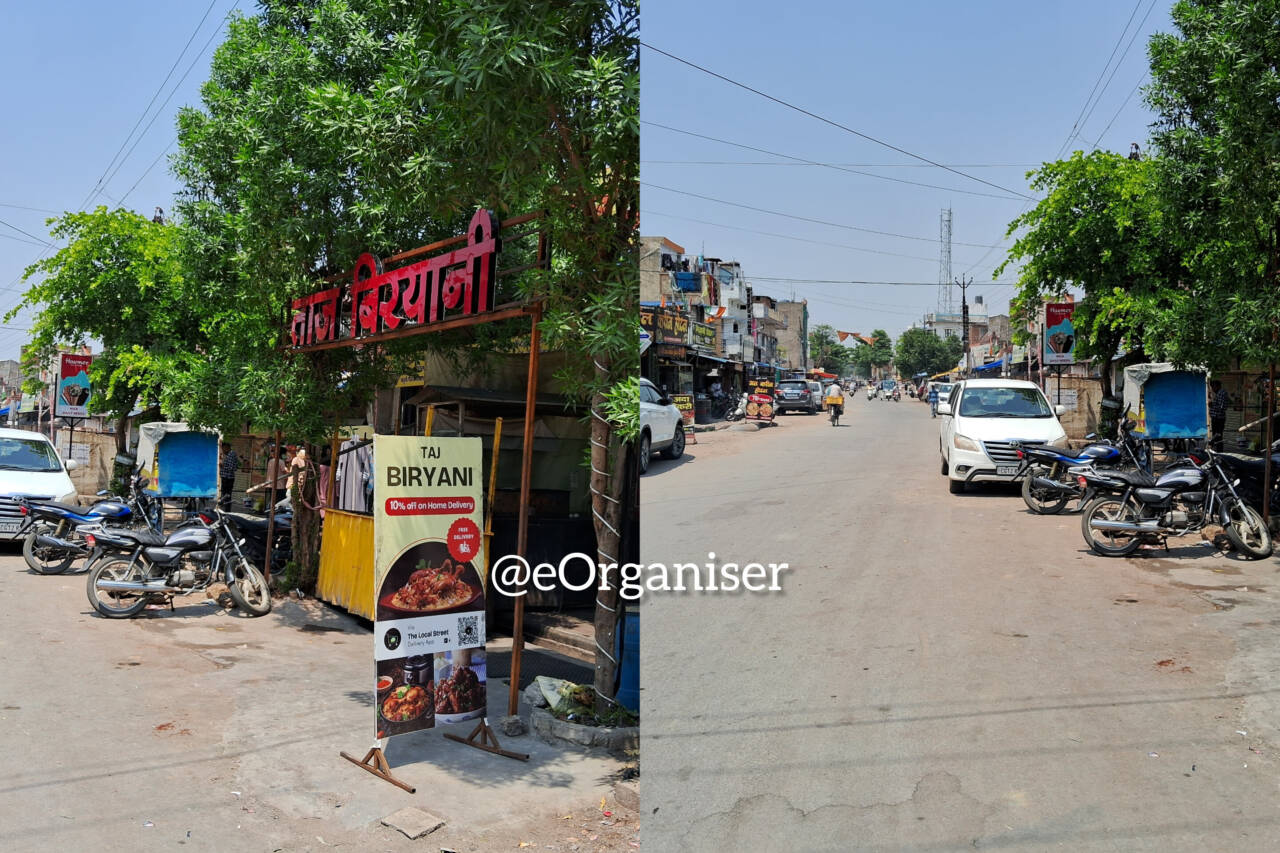
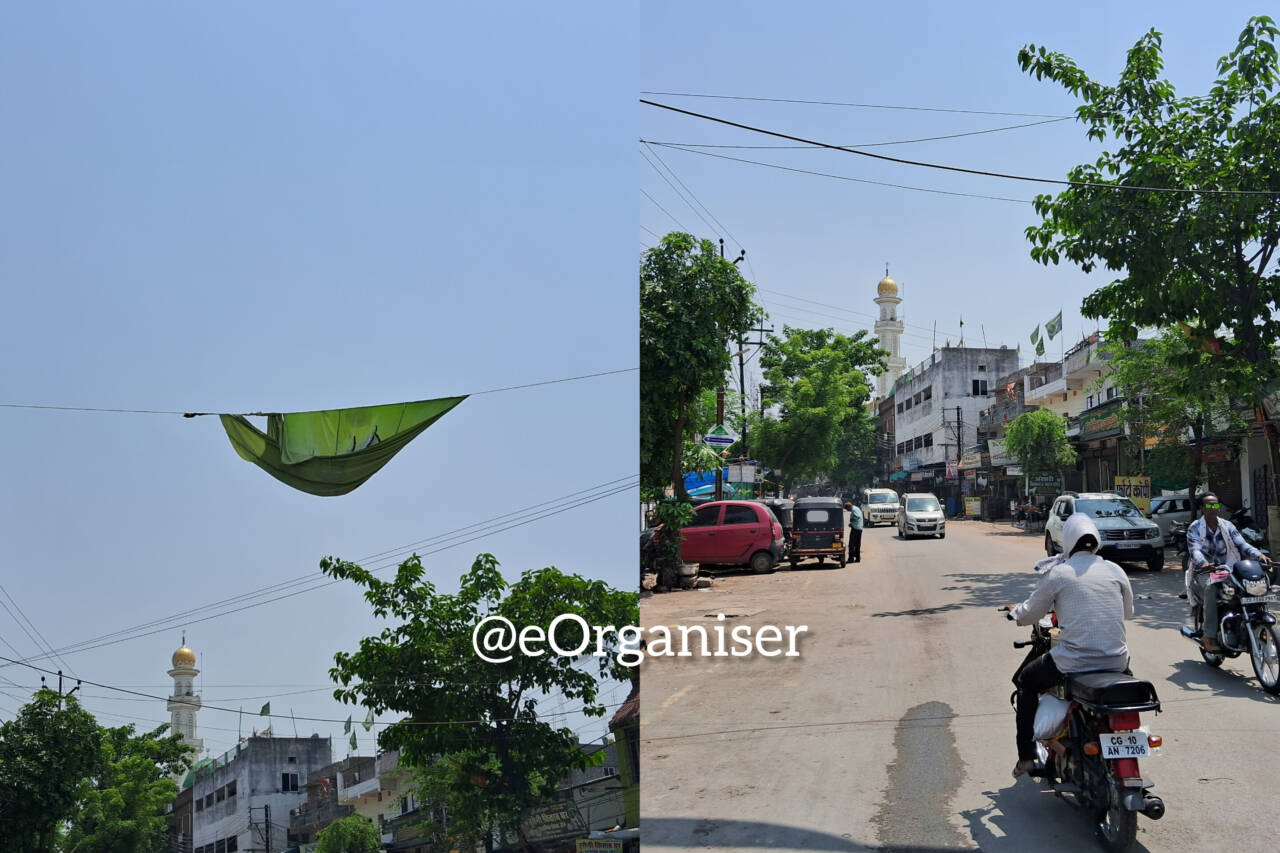
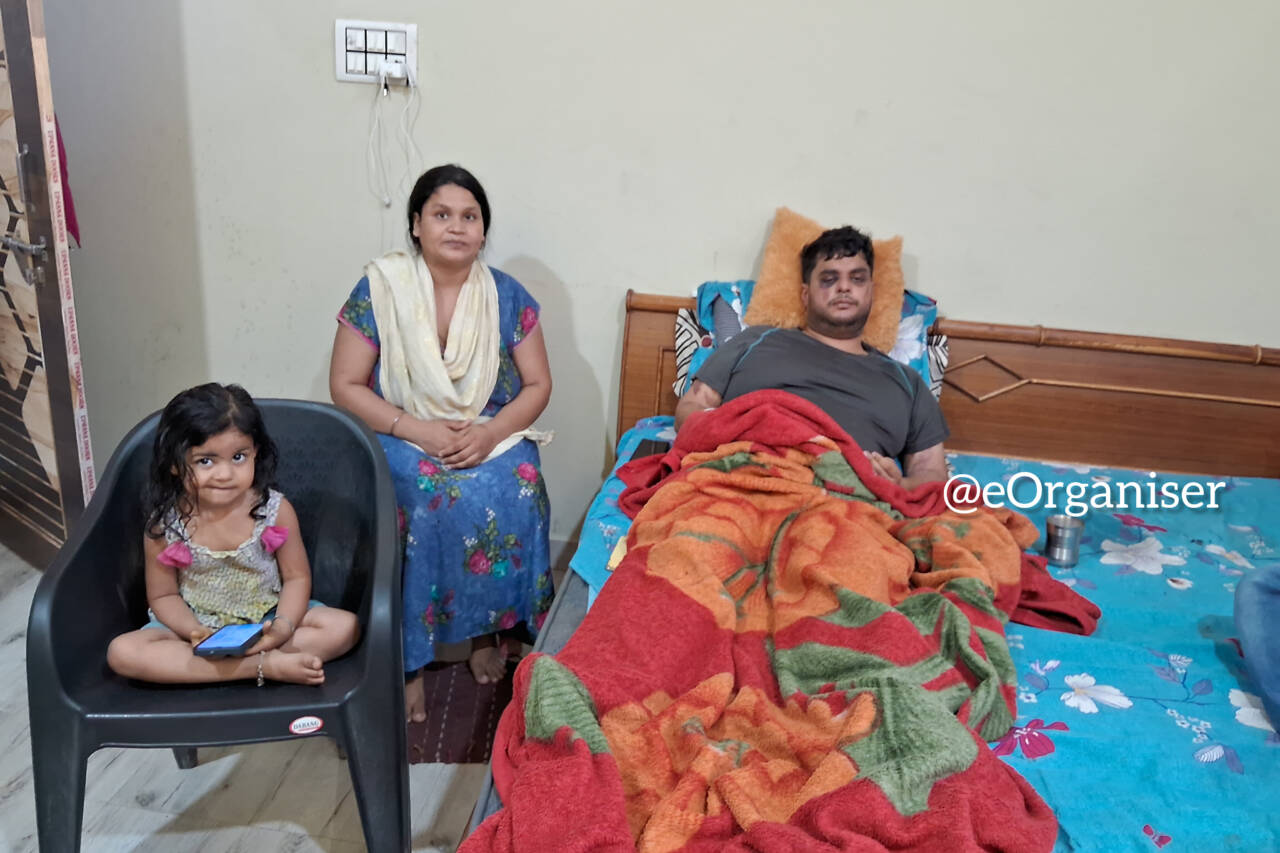
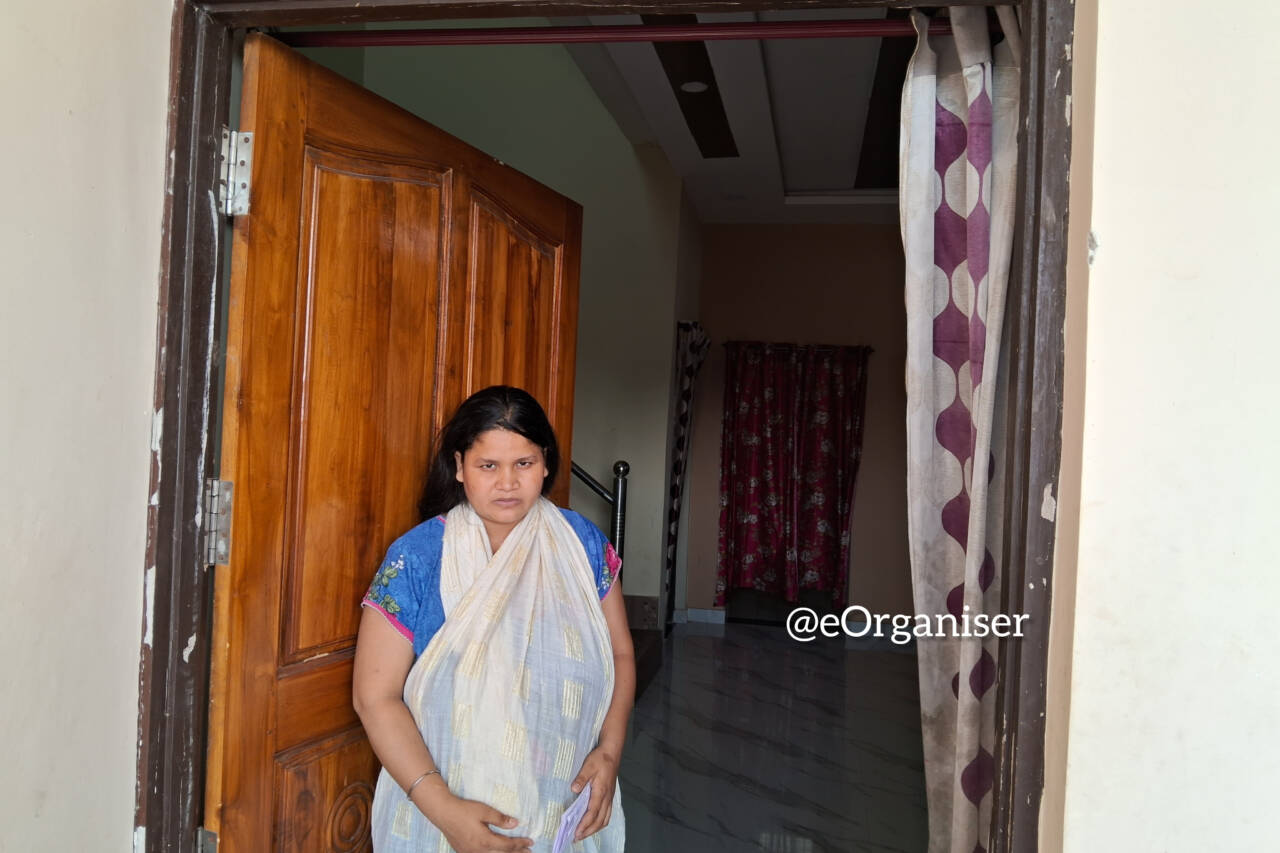
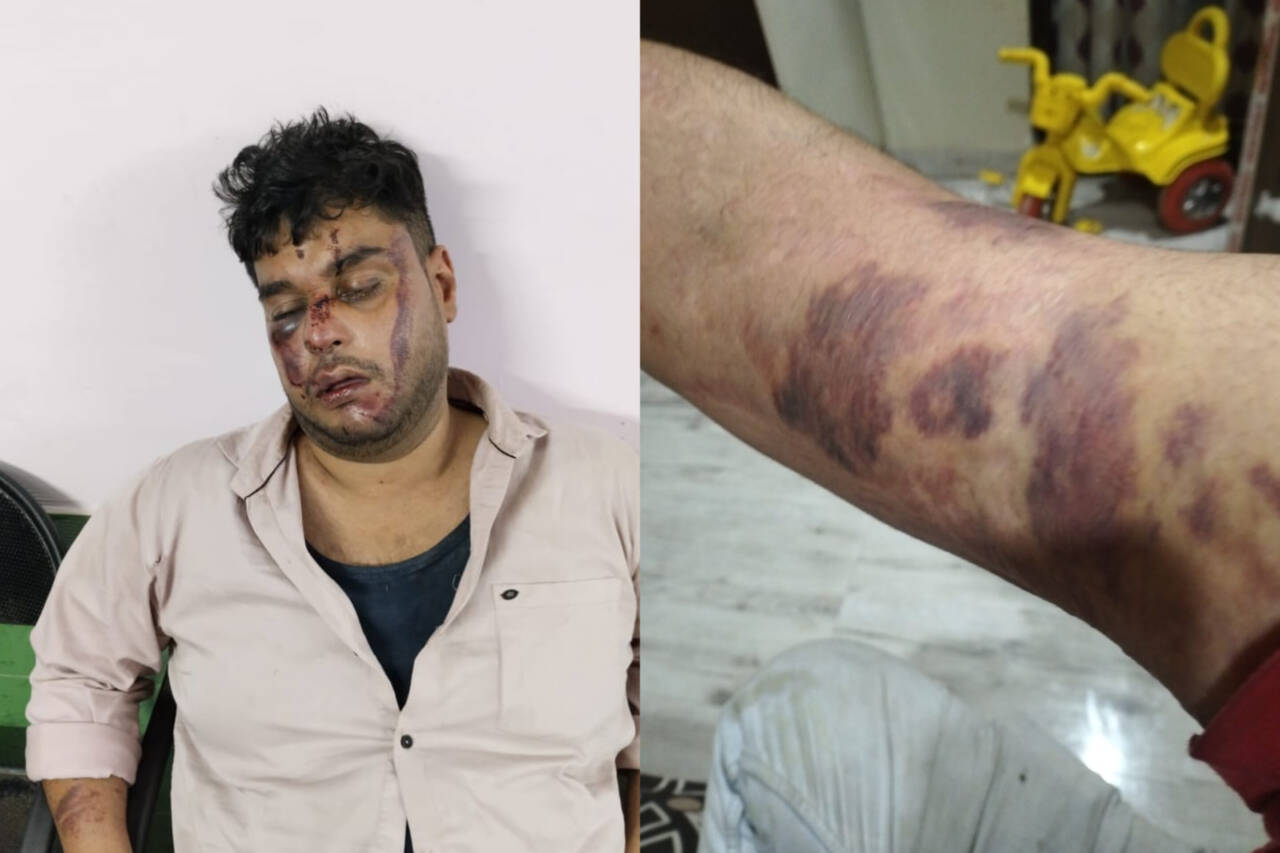
Following the assault, Jeevandeep filed a First Information Report (FIR number: 419/2024) at the Civil Lines police station in Bilaspur on May 7. According to the FIR, the accused were charged under various sections of the Indian Penal Code, including 294 (Obscene acts), 506 (Criminal intimidation), 323 (Voluntarily causing hurt), 427 (Mischief causing damage), and 34 (Acts done by several persons in furtherance of common intention).
Since the charges against the accused were all bailable, they were released within an hour of arrest upon signing a notice. Shortly after their release, they targeted Dhananjay Giri Goswami, a local BJP leader who supported Jeevandeep in filing the FIR and urged the police to register the case. Raja Khan and others visited Dhananjay’s office wielding swords, threatening to mutilate him, stating, “If you wish to reside in Talapara, this Hindutva rhetoric cannot be tolerated.”
They referenced the murder of Naveen Mahadeva, who was killed by an Islamist mob in Talapara for discussing Hindutva in a public park. Similar incidents, such as the killings of Sunny Pandey and Ishwar Batra, have been reported in the past. They threatened to chop Dhananjay into pieces.
In light of a new complaint, the police filed charges against Raja alias Sajjad Ali, Shoaib Khan, Mohammad Faizan, and Sabir Khan under the Arms Act. Notably, two of these accused were also involved in Naveen Mahadeva’s case.
Upon their arrest, the Chhattisgarh police paraded the accused to court before transferring them to the lockups, aiming to impart a lesson for their misdeeds.
In a conversation with Organiser, Dhananjay remarked on the demographic changes occurring in the Talapara area, with an influx of migrants reshaping its composition. While historically a Muslim-dominated locality, there has been a significant population shift in the past five years, particularly with the relocation of Bengali-speaking Muslims, colloquially referred to as Rohingyas, to the colony. Dhananjay himself resides in Talapara, a mere 500 meters from where Jeevandeep was attacked.
Coming from a political background, Dhananjay’s mother served as a councillor twice, but in the current term, a local Muslim leader won the elections. He criticised the Bhupesh Baghel-led Congress government for allowing illegal settlements in the area and called for a thorough investigation. According to him, Talapara houses six mosques, with all shops owned by Muslims, while only around 20 Hindu families reside in the colony.
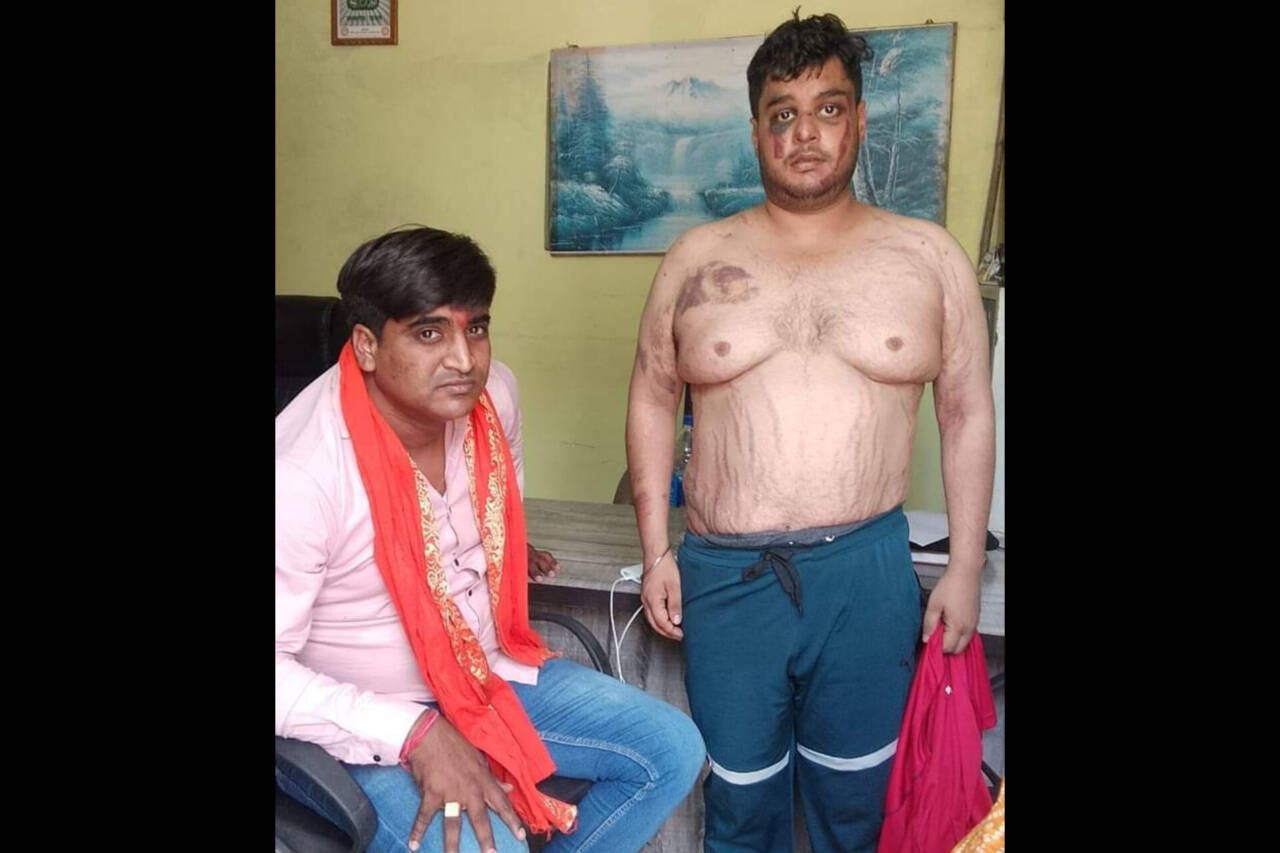
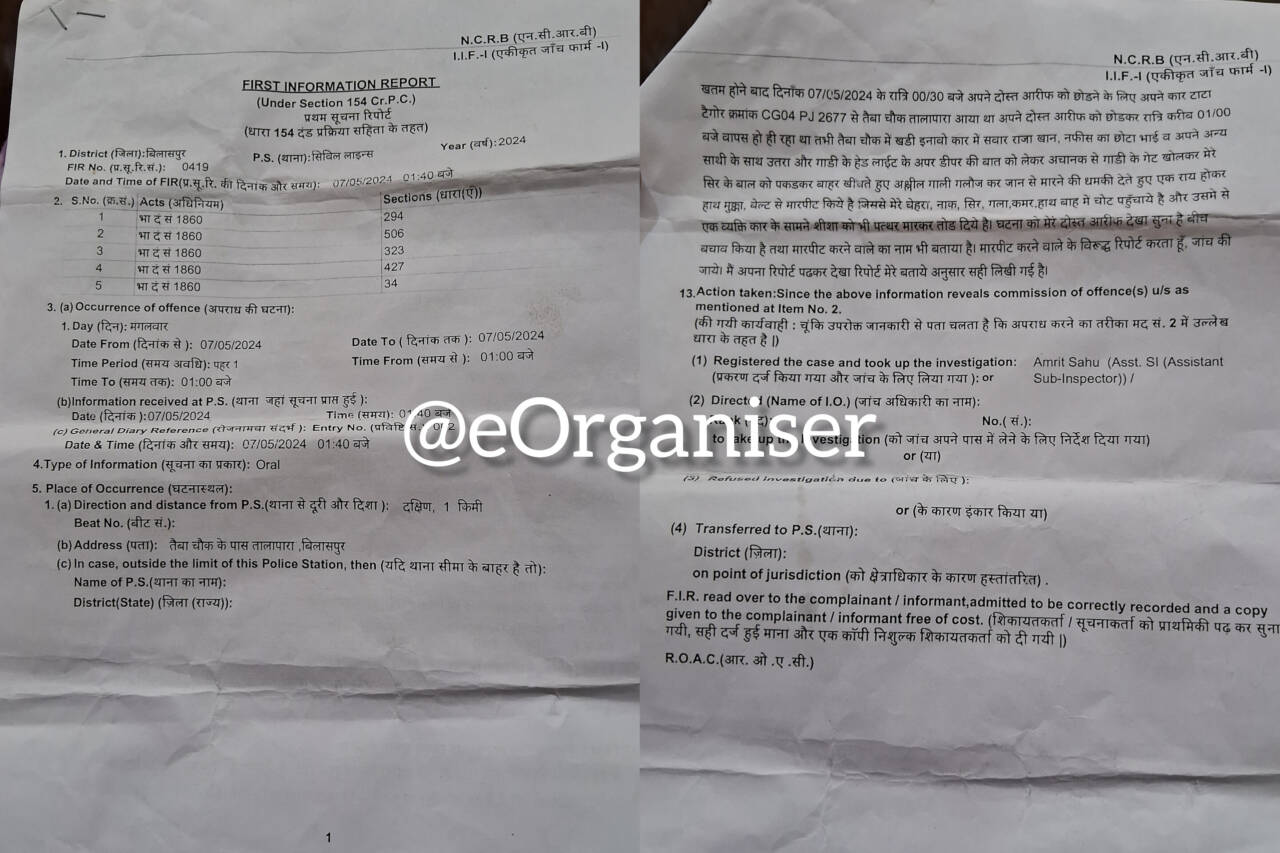

During Organiser’s meeting with Jeevandeep, it emerged that the attack on him may have additional underlying connections.
Jeevandeep’s profession as a Direct Sales Assistant (DSA) involves direct interaction with customers to promote and sell banking products and services. Typically operating in branches or call centres, DSAs assist clients with tasks such as account openings, loan applications, and investment products.
He is employed at Ahuja Marketing, where he collaborates with various freelancers who bring in customers seeking loans. One such freelancer is Arif Mohammad. Around three months ago, Arif introduced a man from his community seeking a vehicle loan.
However, when the repayment process commenced, the man began evading payments. Upon investigation and summoning the individual to the office, he assaulted Jeevandeep. A video footage of which is available with the Organiser.
Similarly, another incident occurred at a car repair shop where a group of Muslim men, including Sameer Khan, attempted to attack Jeevandeep, as he had learned about them being involved in illegal betting and trading. In both the cases, Jeevandep contacted the police to register a case but nothing happened.
While conversing with the correspondent, Jeevandeep expressed his belief that all these incidents are interconnected. Being new to the town and residing alone in his house, he feels targeted by these individuals.
Additionally, Jeevandeep revealed that Arif had attempted to extort money from him as he earns a substantial income of 2 lakh per month from his business.
Jeevandeep’s marriage is a love marriage, crossing caste boundaries, with his wife belonging to the Dalit community. They have two daughters and an elderly mother. With Jeevandeep facing trouble, the women in the family are left without anyone to look after them.
The assault has deeply affected Jeevandeep both personally and professionally, leading to the closure of his business for over a week. He is concerned for his family’s safety, particularly his minor daughters, and has lost trust in Arif, questioning his potential involvement in the attack.
Currently, Arif stands as the sole witness to the attack, and upon the arrest of the accused, they mocked Jeevandeep, claiming that Arif would support them in the case.
Outside Jeevandeep’s residence, his car was parked, with its front and side glass broken.
Riteshwari, Jeevandeep’s wife, demands justice, as her husband has been unable to find peace since the attack occurred, experiencing sleepless nights filled with anxiety and fear. She fears that they live in a distant colony with nobody to help.
The ordeal Jeevandeep endured is deeply troubling, especially as areas like Talapara continue to emerge where the mere presence of common Hindus is deemed a transgression. While the attack may have been instigated by a handful of Muslim youths, the alarming level of support they receive raises significant questions. Equally concerning is the silence of the police and their apparent lack of advocacy for the victim.
As Jeevandeep struggles to even open his eyes, the fact that the police released the accused on bail is profoundly distressing. Although they are currently behind bars, the looming uncertainty of their eventual release casts a shadow of fear over Jeevandeep and his family. How can they feel safe when faced with such a daunting prospect?



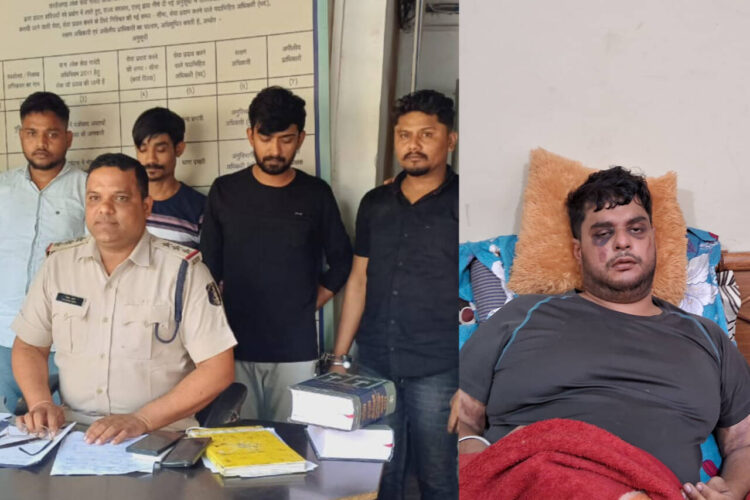
















Comments